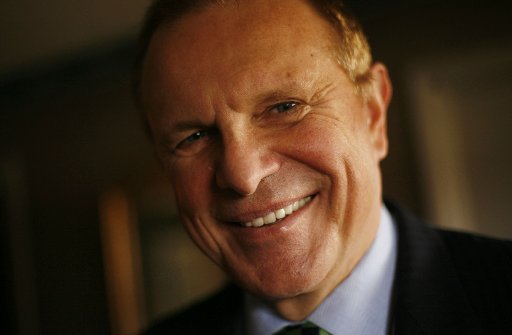






New Jersey Lawmaker: PokerStars Licensing Will 'Very Likely Happen In Short Order'I-Gaming Supporter Sen. Ray Lesniak Eyeing Governor's Office |
|
|
 New Jersey Senator Ray Lesniak, the man who successfully pushed legislation a couple of years ago that brought regulated online gaming to the Garden State, is likely going to be running for governor in the future, when Chris Christie’s time at the helm will be up.
New Jersey Senator Ray Lesniak, the man who successfully pushed legislation a couple of years ago that brought regulated online gaming to the Garden State, is likely going to be running for governor in the future, when Chris Christie’s time at the helm will be up.
Lesniak’s interest in running has the online gaming community even more excited about the state’s future. Lesniak has long wanted New Jersey to be an Internet gaming hub. He wants international firms to set up their headquarters in Atlantic City. With him as governor, the process could really speed up.
Before this can all happen, New Jersey will need to pull the trigger on licensing Amaya Gaming, the parent company of PokerStars and Full Tilt. The company has been awaiting a license for quite some time, but the firm has said that it will happen this fall. Lesniak said all signs point to that still being the likely outcome because “every single rock has been overturned and looked at.”
Card Player had the chance to speak to Lesniak on Friday about his political plans and the future for online gaming in his state.
Brian Pempus: Has there been any official announcement from you?
Ray Lesniak: No, there wouldn’t be any official announcement until after next year’s presidential elections. It’s far away, but what I have said is that my Senate election would be up at the same, that I am not running for relection and it’s either governor or bust.
BP: A lot of people have been sounding pretty excited about the idea of you being governor.
RL: Well, it’s a good thing. I think they should be (laughs). I did fight to get online gaming started in New Jersey and have done my best to fend off some of Sheldon Adelson’s attempts to shut it down. I certainly would be more aggressive than Gov. Christie has been in expanding online gaming in New Jersey into other states and also internationally.
BP: Growth for online gaming revenues has been pretty solid this year, but do you still think there’s a long way to go to create that “Mecca for online gaming” that you talked about before?
RL: Yes, no. 1 would be licencing [PokerStars’ parent company Amaya]. They have a great brand and would create a great footprint in New Jersey. I am told they would invest in Atlantic City, so I would continue to aggressively pursue laying out the welcome mat for e-gaming operators to have their base of operations in New Jersey.
BP: Do you know if the company is still on track for licensure this fall?
RL: I hesitate to venture a guess because the information I’ve gotten over the past year has not passed, but I continue to hear that it will very likely happen in short order.
BP: Awhile ago you were talking about the idea that Gov. Christie was sort of delaying PokerStars being licensed. Since his odds are looking pretty slim these days in the presidential race, do you think that plays any role in the licensing process speeding up?
RL: (Laughs). No, I don’t think so. I just think that every single rock has been overturned and looked at, and scoped thoroughly, and there is really nothing more to do than to make a decision.
BP: Neighboring Pennsylvania looks like it will be regulating online gaming in the near future. Do you envision a compact with that state since it’s right next door?
RL: Absolutely. It’s not just because they are right next door. The Internet travels around the globe, but it’s because we are already up and running and can get them started quicker than any other state can. It would be beneficial to both states.
BP: In addition to bringing international firms to New Jersey for online gaming, can you talk more about the hurdles you would need to clear in order to have a New Jersey player be able to play against someone in Europe?
RL: The only legislative change that would be necessary would be to change the tax structure. Obviously it would not work if there was a tax from where the person was playing from and in the state of New Jersey. But what it needs more is a state leader who would aggressively pursue the needed agreements with other countries to operate in concert.
BP: Federal law would not preclude this sort of arrangement?
RL: No, the only potential obstacle would be World Trade agreements because we don’t allow other countries to come into other states. I don’t see that as getting in the way though. Federal law precludes interstate arrangements unless there’s a compact.
BP: When you first proposed online gaming legislation in New Jersey the appetite for online poker was greater. Nowadays, revenue growth is driven by the other casino games and not peer-to-peer poker. Has this surprised you at all?
RL: Not at all. That’s the reason why the legislation I drafted included every game that casinos could be licensed for. I saw that indeed as a revenue enhancer for the state and equally more important to keep the lights on in some of our casinos.
